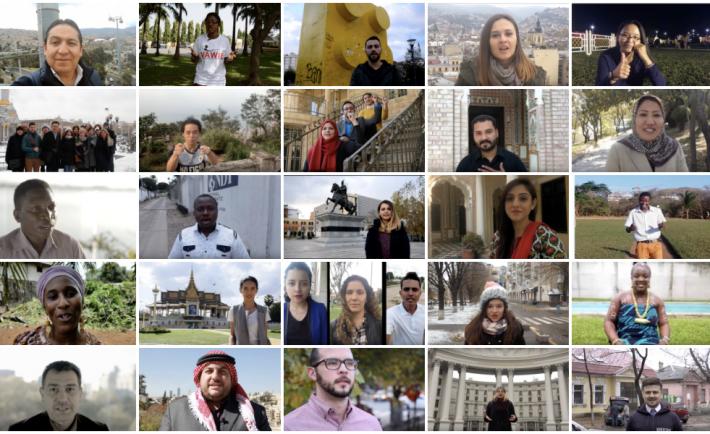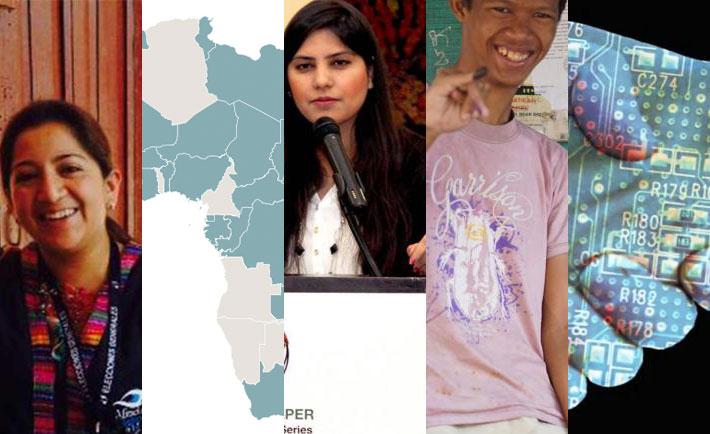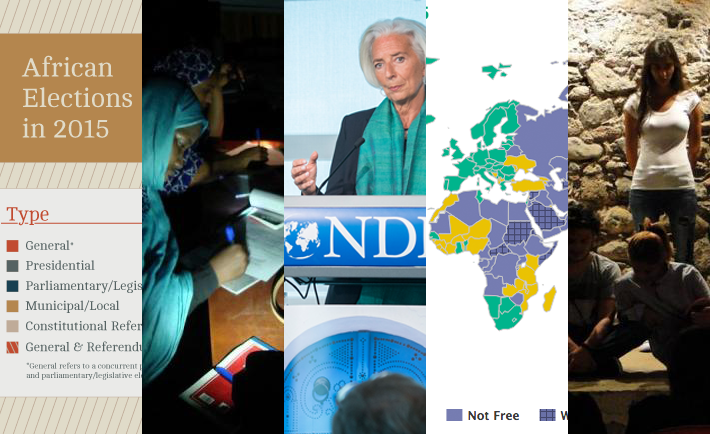For our bipartisan dinner, we developed a video compilation, which asked our partners one single, powerful question: “What does democracy mean to you?” The video responses we collected included both a one word answer and a 15 second explanation on the meaning of democracy. The result was amazing.
What Does Democracy Mean to You?
Best DemWorks Posts of 2016
In the past year, the DemWorks blog has become an established platform for sharing ideas on democratic development around the world. Since the DemWorks blog launched in February 2015, we have published over 159 posts and reached 108,000 users in 198 countries around the world. Here’s the list of the most-read blog posts and series from 2016.
Brexit, Colombian Peace and Democracy: What’s in a Vote?
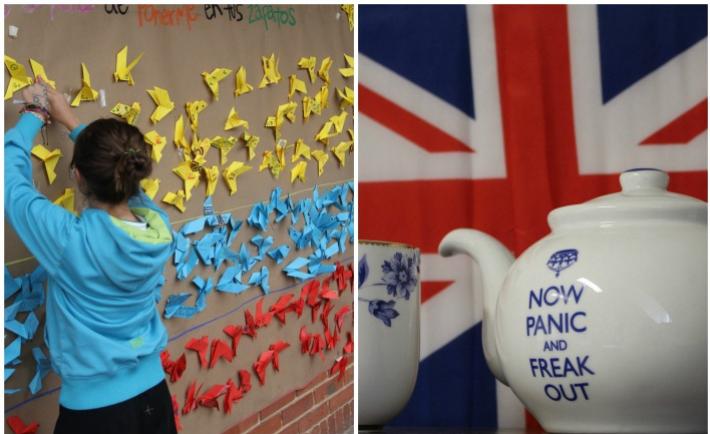
Photos originally uploaded on Flickr by Gimnasio La Montaña ("#SoyCapaz") and frankieleon ("Brexit tea")
The outcomes of the June 23 Brexit vote and the October 2 referendum on the peace deal in Colombia raised questions about voting and political participation: How could something so unanticipated happen? Would people lose faith in democracy? Could we be similarly blindsided in the United States in November? Should we even vote at all?
Put Us in Your Place: Integrating Women into Election Observation
.jpg)
In Côte d’Ivoire, the Plateforme des organisations de la société civile pour l’observation des élections en Côte d’Ivoire recruited significant numbers of female election observers in a post-conflict context. For many of these women, it was their first experience in political activism.
Election observation initiatives are most effective when their findings are not only valid but also—more importantly—accepted as such by the majority of citizens. Observation teams should reflect the diversity of the population so that observer groups can truly speak in the name of all citizens. Gender balance is an important consideration in the composition of observer teams and leadership structures, both of which influence public perceptions of the observer group.
Integrating women into an observation effort helps ensure a more comprehensive understanding of the different barriers to political participation that men and women face. It is also an important step to advance observation strategies that address the distinctive ways electoral violence affects citizens.
Gender-Sensitive Governance: The Missing Ingredient for Resilient Cities
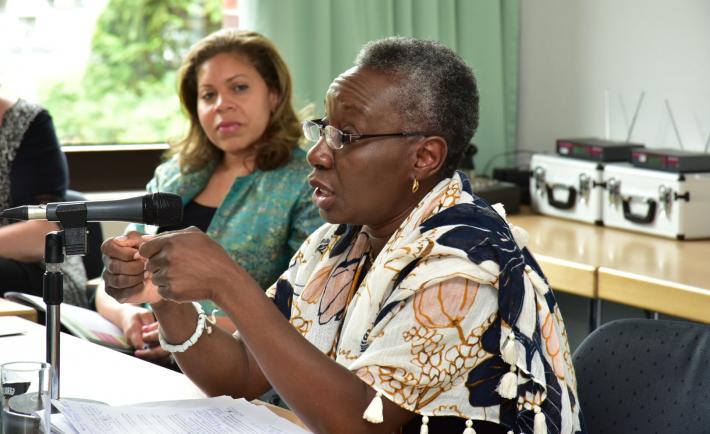
Rockefeller Foundation's Sundaa Bridgett-Jones listens to NDI's Sandra Pepera at ICLEI's Resilient Cities Forum in Bonn in July 2016. Photo Credit: ICLEI-Local Governments for Sustainability
More than half of the world’s population now lives in urban areas. As the forces of globalization rapidly draw more people to urban centers in search of socioeconomic opportunity, we must ask: How do we ensure our cities are safe, sustainable and resilient?
When considering city resiliency, we think immediately of physical necessities: will people have access to clean water, sturdy buildings, safe roads and public transport? Will the city be environmentally sustainable, and be able to weather and recover from natural disasters?
Resilience, though, isn’t only about civil engineering -- it’s also about politics and governance. Inclusive and responsive democracies minimize insecurity and help protect particularly vulnerable community members from potential shocks and stressors. Democracies based on these values guard against instability and conflict and work to address the needs of their populaces, especially in circumstances where the population is diverse and may have competing interests.
The Role of Citizens in Democracy

Having just voted for the presidential elections in July 2014, voters in Jakarta’s Senin district show their inked fingers. Photo by Telibert Laoc
Sovereignty resides in and flows from the people of a country. They have a collective right to choose their governmental, political and electoral systems as an aspect of self-determination. The authority of government derives from the will of the people in their choice of these systems, and the people have a right to take part in their government – including through genuine elections to determine who is to legitimately occupy governmental offices.
Not Just Observation, Guatemala Election Monitoring Opens Doors to Dialogue and Civic Education
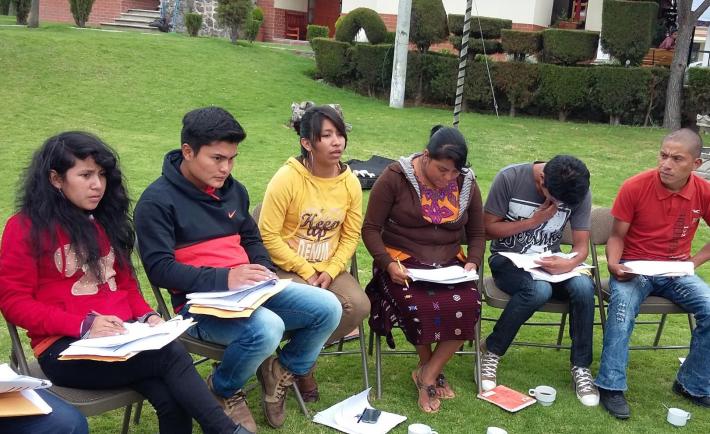
Milvia Roxana Lopez (third from left) speaks during a training for citizen election observers in Guatemala. “Self-confidence was key,” she said, referring to her ability to break through gender-based stereotypes as an election observer documenting incidents of violence and educating voters during last year’s historic elections.
At 25 years old, Milvia Roxana López, an indigenous woman, may be diminutive in size but she exudes a confidence that demands she be heard. As an observer who monitored electoral violence, Milvia met with leaders from her town and surrounding communities to document acts of electoral violence -- not an easy topic to broach in country that has one of the highest homicide rates in the world. “For me, self-confidence was key,” declared Milvia, referring to her role as an election observer. “To many people, it’s not the same when a woman says something as when a man says something. I don’t know where I got the strength, but I did it.”
Why the SOTU Made Me Proud to Work in Democracy Assistance
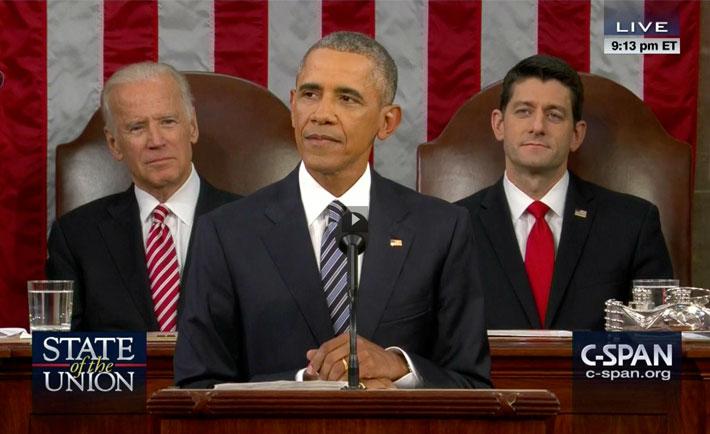
Caption: President Barack Obama, flanked by Vice President Joe Biden (left) and House Speaker Paul Ryan (right), delivers his eighth and final State of the Union (SOTU) address. In addition to listing his policy goals and accomplishments, the President provided a counter-narrative to hyperbolic election-year rhetoric and a reminder of the strength and resiliency of America’s democratic political system.
As a politics nerd, there was no question that I would spend Tuesday night on my couch, listening to the State of the Union (SOTU) address. As someone who has made a career in democracy assistance, the speech held even greater significance: it was an example of democracy in progress.
Best DemWorks Posts of 2015
Thank you for coming along on NDI’s journey into blogging. Since the DemWorks blog launched in February 2015, we have published over 100 posts and reached 57,000 users in 177 countries around the world. More than 400 of you were gracious enough to let us into your email inboxes through the new subscription feature, which was launched in October. While NDI is not a media organization, we have the world’s deepest pool of democracy experts. We hope you have enjoyed hearing our insights and will join us again in 2016. Please subscribe! Without further ado, here’s my list of the top blog posts from 2015.
Venezuela, Burma, Burkina Faso: Connect the Democratic Dots…

A Burmese anti-government protest in front of the Petronas Twin Towers. Photo credit: Off2riorob CC BY
In the four weeks between November 8 and December 6, 2015, the peoples of Myanmar (Burma), Burkina Faso and Venezuela delivered surprises: resounding defeats to military rule, strongman domination and populist authoritarianism. These bright spots are the consequence of perseverance by democratic activists in the face of repression. They also highlight the importance of elections as a peaceful means for people to bring about change.
Pages
- « first
- ‹ previous
- 1
- 2
- 3

